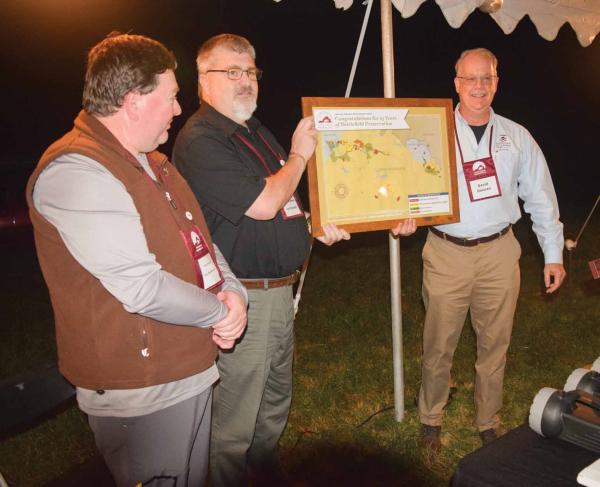
Chris Mackowski & Kristopher D. White
Once Union troops gained a toehold in the downtown area, the Battle of Fredericksburg could begin in earnest. With nearly 200,000 combatants, no other Civil War engagement featured a higher concentration of soldiers.
Burnside’s plan was to use the nearly 60,000 men in Maj. Gen. William B. Franklin’s Left Grand Division to crush Lee’s southern flank on Prospect Hill, while a secondary assault against Lt. Gen. James Longstreet and the Confederate First Corps positioned on Marye’s Heights pinned down and distracted his foe.
The Union army’s main assault against Lt. Gen. “Stonewall” Jackson across the Slaughter Pen Farm and up the slopes of Prospect Hill produced initial success, even threatening to collapse the Confederate right. But a lack of reinforcements, coupled with a powerful Southern counterattack, stymied the effort. Both sides suffered heavy losses — a total of 9,000 casualties were inflicted — with no real change in the strategic situation.
Meanwhile, Burnside’s “diversion” was launched against veteran Confederate soldiers occupying a strong position in a sunken road, behind a stone wall. Wave after wave of Federal soldiers marched forth to take the heights, but each was met with devastating rifle and artillery fire from the nearly impregnable Confederate positions. Confederate artillerist Edward Porter Alexander’s earlier claim that “a chicken could not live on that field” proved to be entirely prophetic this bloody day.
As darkness fell on a battlefield strewn with dead and wounded, it was abundantly clear that a signal Confederate victory was at hand. The Army of the Potomac had suffered nearly 13,000 casualties — nearly two-thirds of them in front of Marye’s Heights. By comparison, Lee’s army had suffered some 4,500 losses. Watching the great Confederate victory unfolding from his hilltop command post, Lee philosophized, “It is well that war is so terrible, or we should grow too fond of it.”
To restore land and history at Gettysburg, Cold Harbor, Slaughter Pen Farm and New Market Heights, we must raise $131,000. Please help to finish the...
Related Battles
12,500
6,000


